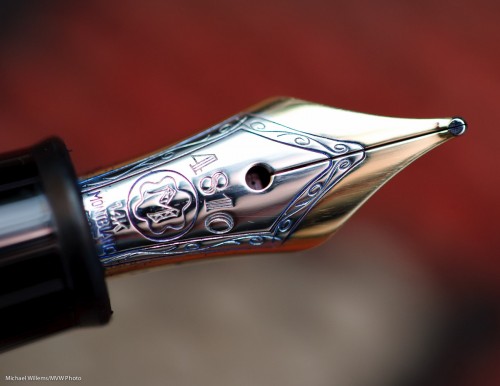A word about business, today on Speedlighter.ca. About contracts and rights, specifically. Copyright. I am not a lawyer, but as a photographer, I feel that “copyright” is an important concept.
For most shoots, the photographer retains the copyright of the images. Hire a wedding shooter, for instance, or a commercial photographer, and the small print will invariably say that this shooter “owns” the images.
Why?
Having copyright means the photographer determines what can be done with the work.
If there is no specific agreement to restrict the photographer’s copyright, that copyright rests with the photographer. In some jurisdictions you may need to “do” something to register copyright; in many (like Canada, as I understand it) that is less necessary.
The photographer having copyright enables cheaper pricing in two ways:
- The photographer can potentially re-use the images;
- If the agreement prohibits commercial use by the client or allows use only in a specified geographic area, or for a limited time, then the price can be lower).
This is the case in any commercial shoot (even when you have portraits made at a commercial studio, or, as said, by a wedding photographer).
If, however, the client can determine the use of the photos, that then gives that client de facto copyright over the photos. In that case, no way exists to lower the price by limiting commercial use, say. Another problem is that in that case, the photographer might not be able to show the pictures as part of his or her portfolio. Or even show them to the processing lab for printing. Or even fix them up in Photoshop. Or make a “photographer selection” of good or bad images! So this opens several potential issues, and a detailed contract would have to be drawn up restricting and granting the photographer’s specific rights. Unforeseen situations would make this a rather complex process.
So the complexity goes up and the cost rises. This is why normally, a shoot where the client owns the copyright (and it does happen, of course – as in the case of a “shooter for money”) necessitates the following:
- Client does the post work;
- Detailed agreement as to photographer rights;
- Significantly higher price – normally at least double, often more.
So instead of doing this, it is often easier to put some restriction in an agreement. For instance, in a boudoir shoot it is usual for the photos not to be shared. The copyright still rests with the photographer, but he or she can agree to not share the pictures except under some agreed circumstances (e.g. after permission in writing, or in only certain ways).
Of course this is not legal advice – to get that, go see a lawyer. But it is advice to the effect that you need to think about who owns your images’ copyright, and you need to be explicit about this. Rights exists under the law- they are someone’s – and you might as well be explicitly clear about this. Hiding the issue of who owns what right never solves anything; rather, it sets you up for problems later.
And that is why, as a photographer, you need a written agreement.

